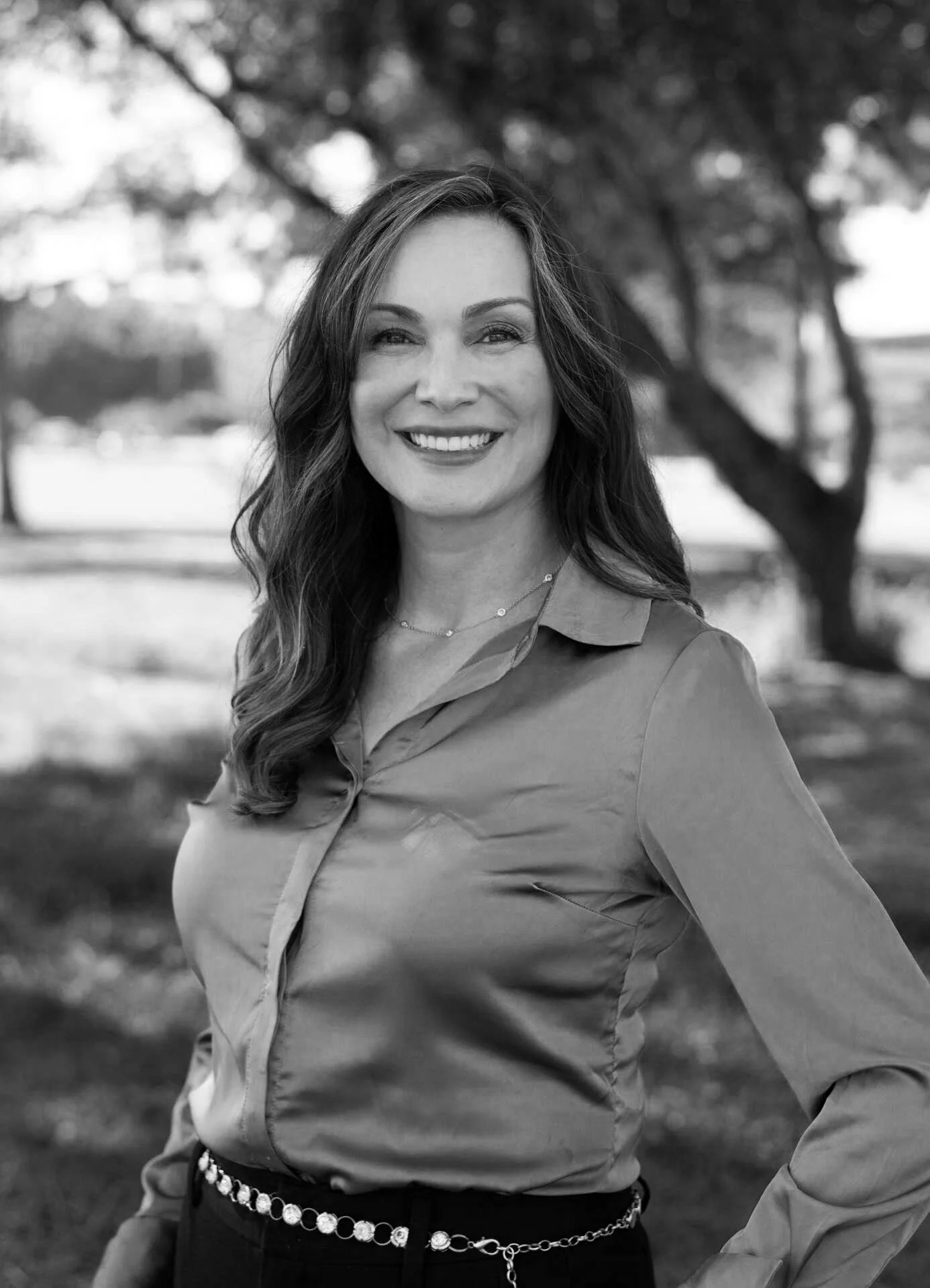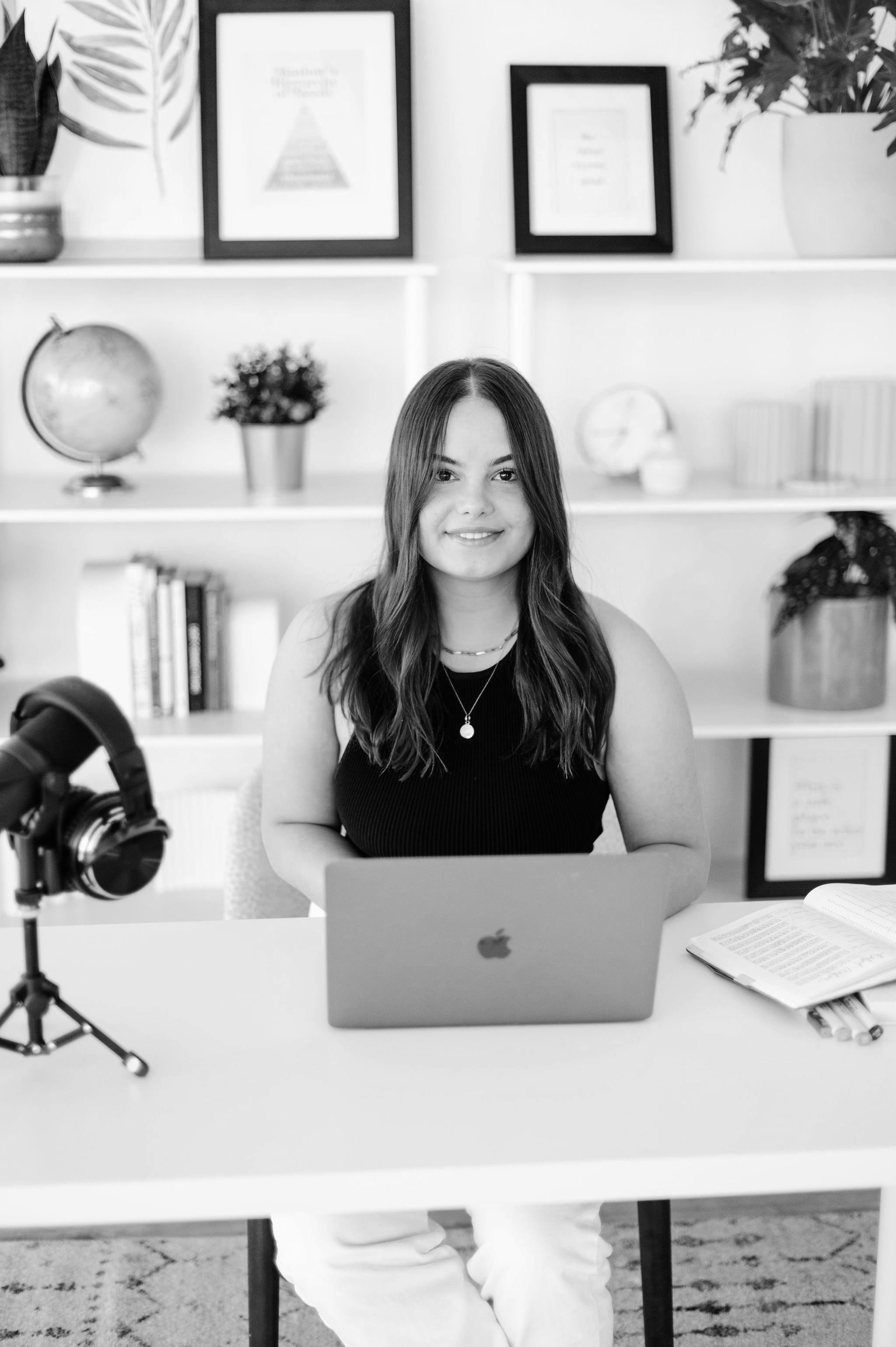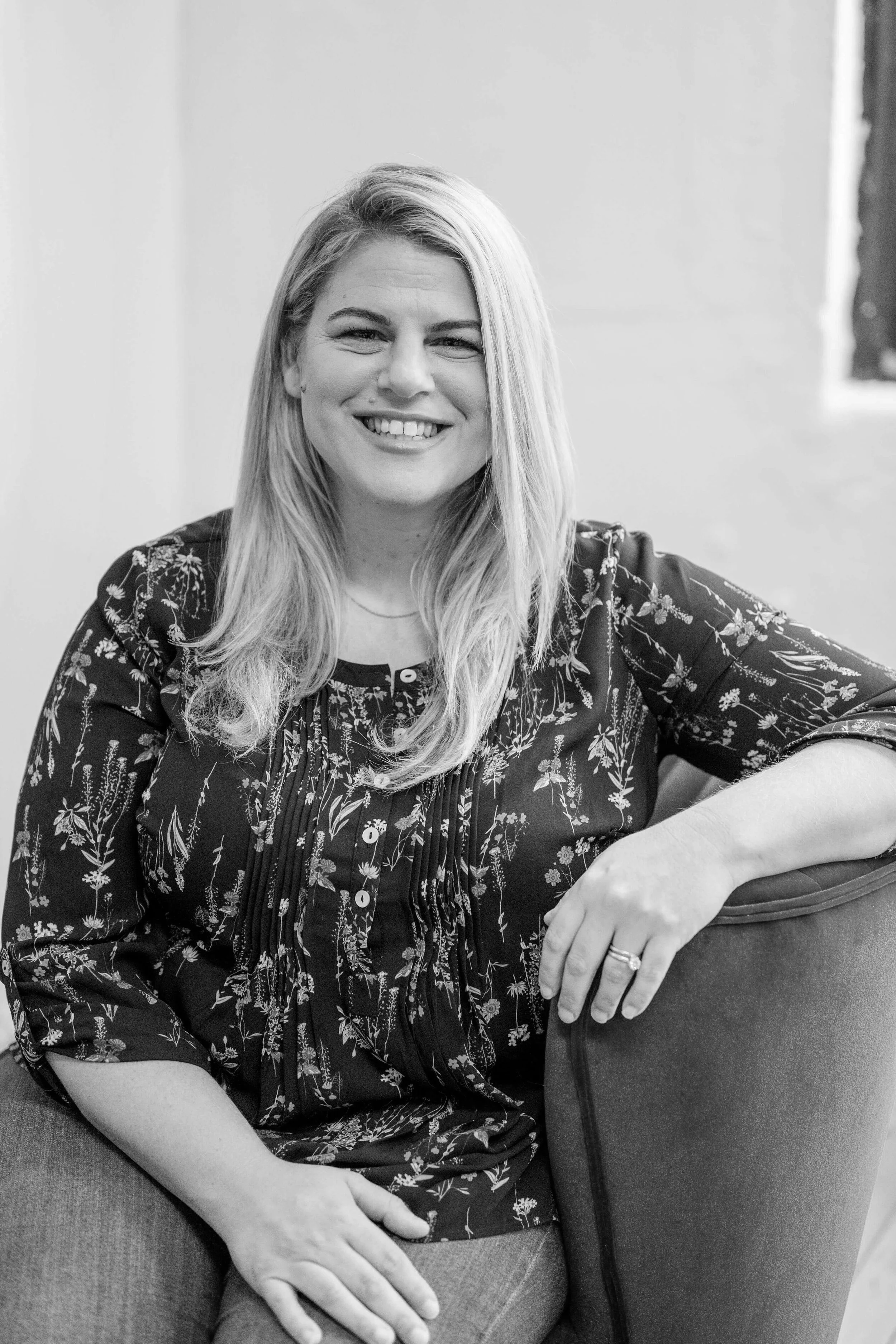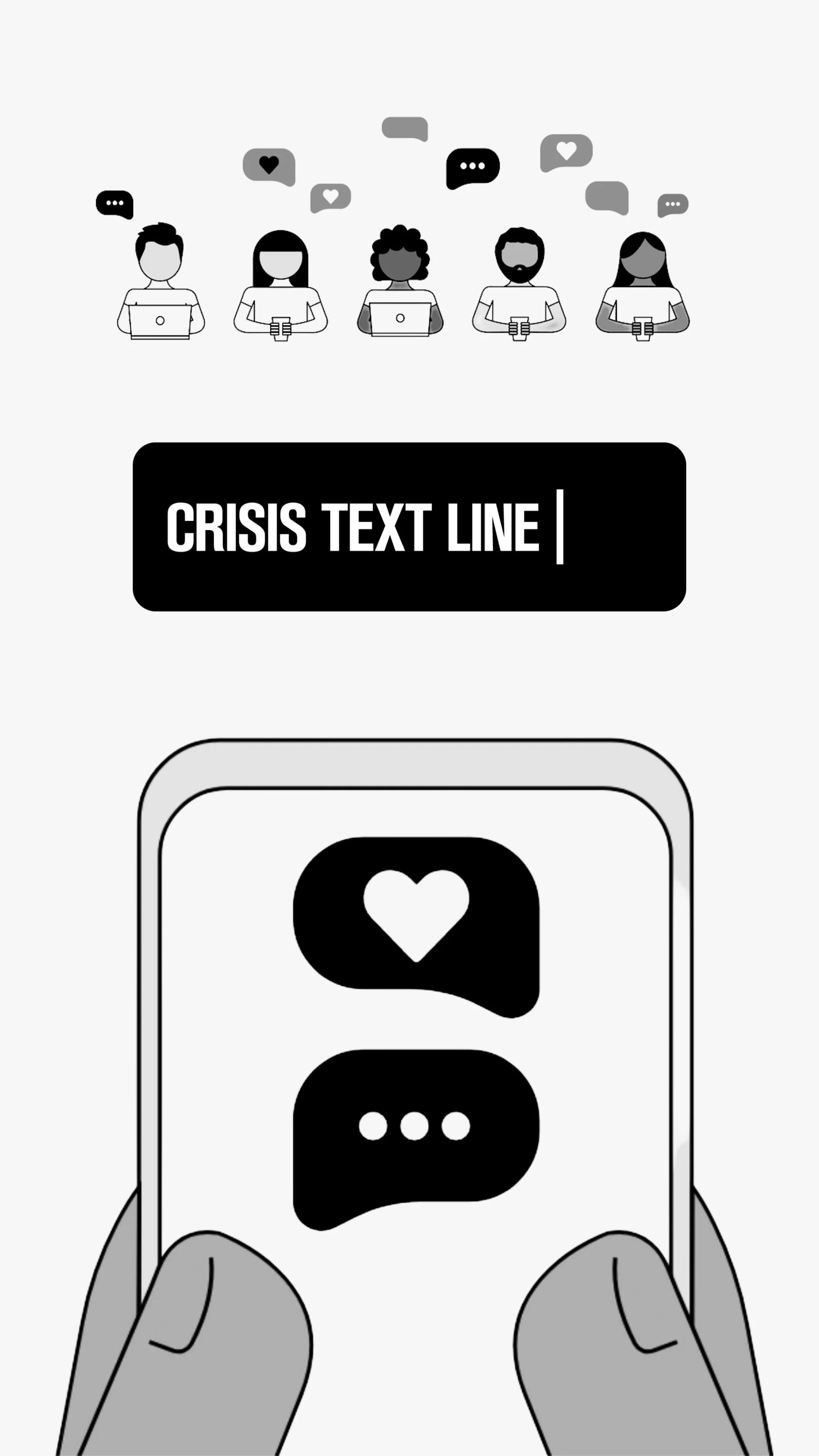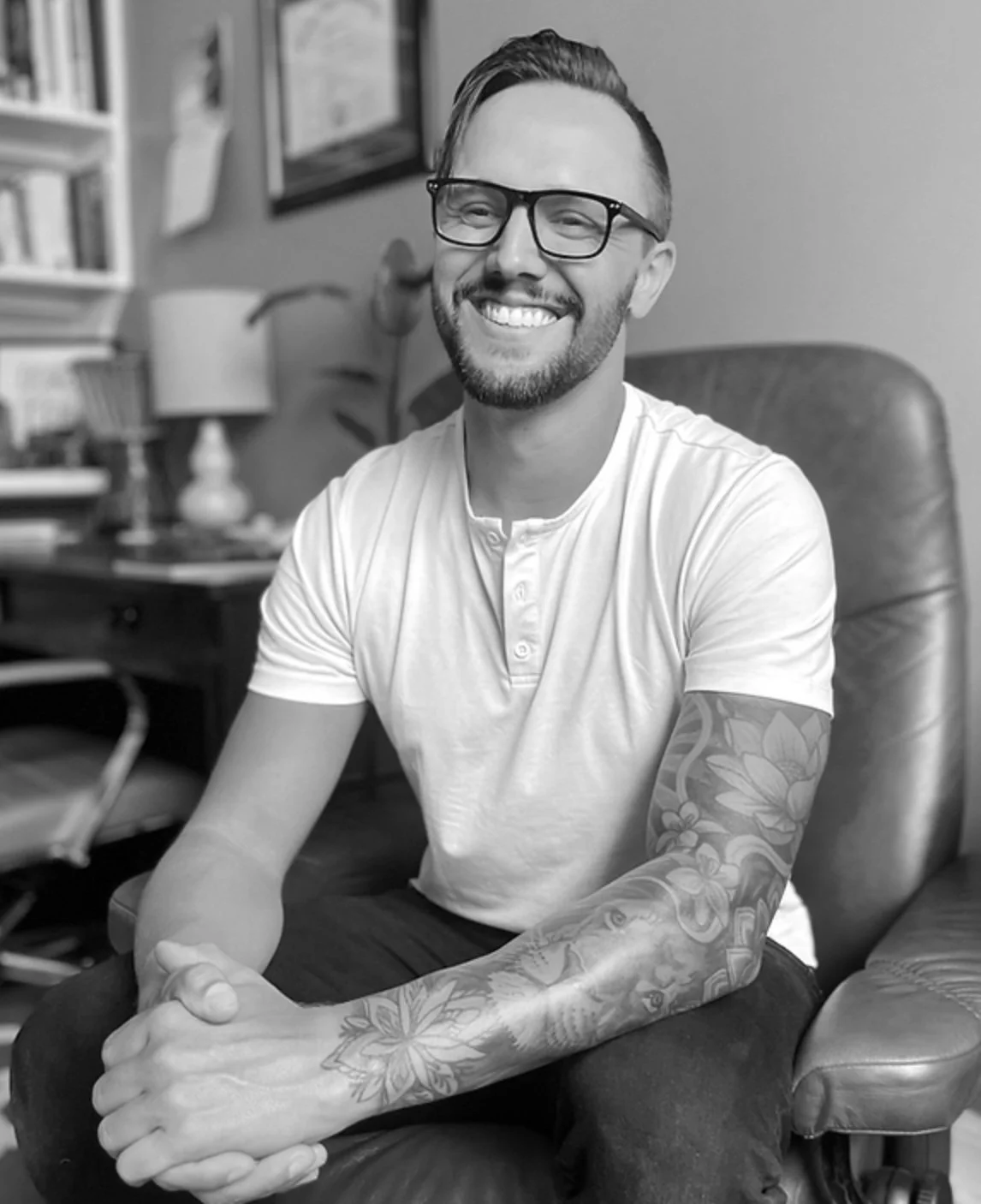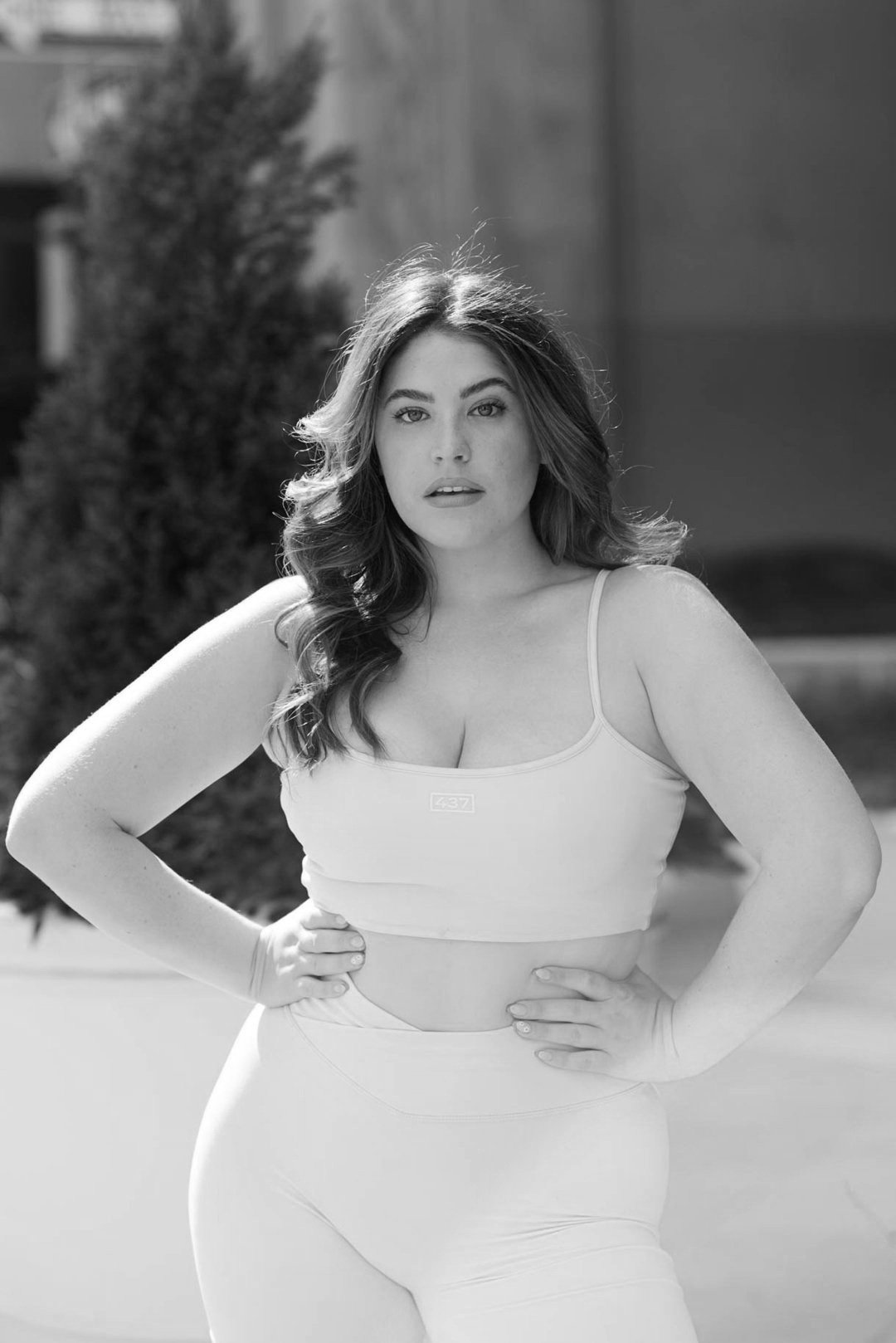178. MENTAL HEALTH HOT TAKES: Teen Mental Health, Therapeutic Boarding School, Exposure Therapy, & More!
listen to this episode:
Tune in and subscribe on your favorite platform: Apple Podcasts | Spotify | Stitcher | Google Play | Radio Public | PocketCasts | Overcast | Breaker | Anchor
In this week's solo episode, I discuss my ultimate mental health hot takes! I give my most honest takes on what works and what doesn't when it comes to your mental health and share some of my favorite mental health tips I've learned throughout my recovery. I give my hot takes on topics such as:
+ Mental health progression & regression
+ What you should do when your mental health ISN'T struggling
+ Why positive psychology is absolutely necessary
+ Teens going to each other for mental health advice
+ Why EVERYONE should do exposure therapy
+ Why there are no reputable therapeutic boarding schools for teens
+ so much more!
Mentioned In The Episode…
+ She Persisted Ep. 81 feat. Dr. Aliza Pressman
+ Therapeutic Boarding School TikTok
SHOP GUEST RECOMMENDATIONS: https://amzn.to/3A69GOC
About She Persisted (formerly Nevertheless, She Persisted)
After a year and a half of intensive treatment for severe depression and anxiety, 18-year-old Sadie recounts her journey by interviewing family members, professionals, and fellow teens to offer self-improvement tips, DBT education, and personal experiences. She Persisted is the reminder that someone else has been there too and your inspiration to live your life worth living.
a note: this is an automated transcription so please ignore any accidental misspellings!
Sadie: Welcome to She Persisted. I'm your host, Sadie Sutton, a 19 year old from the Bay Area studying psychology at the University of Penn. She Persisted is the Teen Mental Health Podcast made for teenagers by a teen. In each episode, I'll bring you authentic, accessible, and relatable conversations about every aspect of mental wellness.
You can expect evidence-based, teen approved resources, coping skills, including lots of D B T insights and education in. Each piece of content you consume, she persisted, Offers you a safe space to feel validated and understood in your struggle, while encouraging you to take ownership of your journey and build your life worth living.
So let's dive in this week on She persisted.
Sadie: when we are not being intentional and mindful with our mental health, We usually revert to what we know. And if you have struggled with your mental health in the past What you know likely isn't healthy. Maybe it's unhealthy relationships.
Maybe it's bad self talk. And so when you put your mental health on the back burner and just go on autopilot, that autopilot is really harming your mental health. And so if you can have the mindset, if I'm not progressing, I'm regressing, because change is constant.
Our mental health is never just going to stay the same. And you can make those tiny steps that are moving you in the right direction you are going to be able to maintain that recovery and also just live a happier, more balanced, and fulfilled life.
Hello, hello, and welcome back to another episode of She Persisted. We have some updates happening. First and foremost, if you are watching this on YouTube, we have a new little filming setup. Kind of like the YouTube podcast vibes happening.
So let me know if you guys like that. Kind of like a fun, chill hangout with me while I record. Also, if you are listening to this and you write a review and send me a screenshot, I am doing a 10 Starbucks gift card every month where one winner Who sends me a screenshot of their review on Apple Podcasts gets a little gift card.
So they're like self care Coffee moment on me and on She Persisted So I really hope you enjoy and all you have to do is write the review, leave a screenshot DM it to me on Instagram. You can email it also and One person will be chosen. We'll like do like a little wheel spin and you get a gift card And of course, if you like Duncan or something instead, let me know and I can send that to you instead.
But I'm really excited about that. Lots of time to enter that giveaway as from when this episode is going live to when it ends in February and it's going to be happening every month. So if you don't enter this month, you could enter next month as well.
So With that out of the way
We are doing a really fun episode today, and it's gonna be my mental health hot takes Which I think is a fun little like chit chat. Let's talk about what works and what doesn't honest opinions moment And some of these I brought up in former episodes within, like, little tips and tricks regarding mental health. Some of these are brand new. I've never talked about them before. And I think they'll be fun. And I would love to hear what your mental health hot takes are.
So definitely send me a DM on Instagram, email, whatever you like to do, and let me know what they are because I think it's so fun to hear what you guys are thinking.
The first hot take that I want to give you is that if you are not progressing, you're regressing. And if you've heard me say this before, for probably like two or three years of doing the podcast, I would say if you're not progressing, you're digressing.
Like I digress and go in a different direction. You just don't, maybe that's correct, I'm going to look that up after this. Bye. What I meant to say is if you're not progressing, you are regressing. And the idea here is that if we think of our mental health like a chart, like something that you would see in math, and each different second or minute or week or month or even year is a different data point.
It's never constant. Like our mental health is changing every single moment, second, etc. And that is really the only constant in life, is that it's not fixed, and this is especially true when it comes to our mental health. And so if we can think of it like that general pattern, and we think about our recovery or the progress that we've made, you are either likely moving on an upward trajectory or a downwards trajectory, like between each data point, never going to be like, oh my gosh, I'm in the exact same direction.
And when I say this piece of advice, And I'm applying it to general life. I'm just talking about the larger trend. , it's not the idea of, like, if you are not better with your mental health than one second ago, you're, , on a bad path. But just in general, like, week over week, month over month, year over year.
And just like any data, things go up and down, things change, you're not always going to have a complete trend one way. But, I think this is a really important concept to keep in mind, especially when you're in early recovery or trying to make changes for your mental health. And it's the idea that, like, if you are focusing on building healthy habits and establishing a foundation, whether it's your physical health, the way you talk to yourself, the relationships that you have in your life, the coping skills that are in your toolkit, the media you're consuming, like, all of these little pieces of the puzzle.
If those are positive and healthy behaviors and practices that you are incorporating, those by themselves, just on autocomplete, like you do them day in and day out and you don't even have to think about them anymore, those are keeping you on an upward trend. Like, every time you get a good night's sleep and eat balanced and get some movement in, that is all helping your mental health.
Every time you talk to yourself in a more positive way versus like really talking down on yourself. You're moving in the right direction, and so it was really helpful for me in early recovery to remember the idea that if I wasn't making those positive changes, I wasn't just going to stay stagnant.
I was going to be moving in the wrong direction. And this I think is especially true if you have a history of mental health problems. If you're listening to this podcast and you're like, my mental health is generally good, like when I don't think about it or put any attention to it, it's fine. I'm just good.
You're probably doing this like on autopilot, but Maybe your baseline autopilot state is moving in that right direction And having these positive practices in your life. If you're like me, and the way that you've taught yourself to, cope with emotions, and, think about yourself and interact in the world wasn't the healthiest, and if you're not making an active, like, intentional shift, that's what you revert to, this is when this tip and piece of advice applies to you.
And I think I've gotten Far enough from recovery and practicing making these little shifts for so long that my autopilot baseline is more positive and I'm moving in that positive trajectory but I also internally , I have that mindset and that mental clarity that like any of those other things aren't aligned with my life worth living.
Talking really negatively to myself, not aligned with my life worth living, having really unhealthy relationships. Not aligned. Having a terrible sleep schedule. Choosing not to sleep, and like, prioritizing other things, and not believing sleep is important. That's not aligned. Maladaptive coping mechanisms. Not aligned. And so,
Building this positive trajectory mindset, and this making progress rather than regressing, mental shift has been really helpful and also aligned with, , my long term goals and picture for my life. But anyway, so it's a little bit of a tangent. All of this to say is that if you are just in recovery and you are in the early states of making these behaviors, remembering that if you're not making those active choices to improve your mental health, you revert to what you know.
And what you know That probably isn't the best if you struggle with your mental health for a long time. And so, you don't have to hold yourself to this strict thing of like, I will only do things that are good for my mental health. And if I do one thing that's off track, I failed. That's not at all the advice or the tip or the, the mindset here. It's like, I want to know that week over week and month over month.
I'm making progress and that I'm improving my mental health. And so it's like the 80 20 rule. It could be like the 51 49 rule, although then you're balanced in life, you'll probably not feel the greatest all the time, but like 80 percent of the time, you're doing those things that are pushing you in the right direction.
You're talking positively to yourself. You're consuming media that boosts your mood. You're invested and engaged in healthy relationships. You're doing something that gives you a sense of meaning and purpose. You're optimizing on these things that bring you joy and and make your life worth living. You have those like physical health behaviors that you're taking care of.
All of those things on that 80 percent keep you in that upward trajectory and put you in that bucket of progressing rather than digressing. So to wrap that up, when we are not being intentional and mindful with our mental health, We usually revert to what we know. And if you have struggled with your mental health in the past What you know likely isn't healthy. Maybe it's unhealthy relationships.
Maybe it's bad self talk. Maybe it's maladaptive relationships. And so when you put your mental health on the back burner and just go on autopilot, that autopilot is really harming your mental health. And so if you can have the mindset, if I'm not progressing, I'm regressing, because change is constant.
Our mental health is never just going to stay the same. And you can make those tiny steps that are moving you in the right direction and apply the 80 20 rule to your mental health. you are going to be moving in the right direction and be able to maintain that recovery and also just live a happier, more balanced, and fulfilled life.
The next unpopular opinion that I have, which this probably isn't super unpopular, I think the, like, degree to which I believe it is probably unpopular, but I think you should be 100 percent equipped to take care of your mental health long before your mental health starts struggling.
And that means knowing what to do when you get anxious. That means knowing what the signs are of being depressed. And that means knowing the importance of relationships and understanding how to increase the frequency of positive emotions and knowing what interventions you can do when your mood starts to struggle to turn things around really quickly.
And there's a couple of reasons that I believe this. The first is that if anyone in your life is ever struggling, you are in an incredible position to support them. So say you run into the bathroom, someone is having a panic attack, and they don't know what to do. If you know the skills that work to reduce anxiety, you can say, hey. this is super overwhelming. I promise it's going to be okay.
I know this feels like it's not going to stop anytime soon, but I promise biologically your body can't have a panic attack for a long period of time. So you're going to feel better. This is going to pass. We got this. Then you say, let's focus on your breath. I want you to focus on breathing in and breathing out and trying to breathe more slowly.
Here, put this cold compress underneath your eyes. This is going to slow down your heart rate and your breathing rate and help you calm down. Giving them those quick tips, whether that's a friend or a family member or just even a stranger who's struggling, if they're open to having a little support and help, I think is such an incredible skillset to be equipped with.
Same thing goes for, relationship dynamics or depression or any of these things. Like, say a friend comes to you and is like, I am having this problem with a friend or a boyfriend or whatever it is, and you're like, that sounds like the most unhealthy relationship I've ever heard of. Obviously, you'll try and be nicer about it, but you know what signs to look for and you can be like, , how do you feel in this relationship?
, what do you think about having this person in your life long term? Or , is the way that they're talking to you, like, would you let them talk to, , me that way? And you can kind of put these things into context and be able to give better advice, if advice is what they're looking for. And then things like depression and those types of things.
I think we all navigate grief, like grief is unavoidable in life if we have any type of relationship or emotional attachment to anything. Those type of emotions and dynamics and situations that you will encounter. Having that skill set of being like, relationships are the number one determinant of happiness, and this person needs support, and yes, they do need some time to themselves, and being alone is something that is important when you're navigating intense emotions, but having those consistent relationships and interactions are so incredibly powerful for their mental health, so yes, I will text every day and be like, do you want me to come over and like, help clean, or can I bake you like a treat or something?
Writing them a note, etc. So I think just in general from a support perspective, you are going to encounter someone that is struggling with these things at some point. And if you have a skill set to support them, that makes you an incredible asset in that relationship. And not like a work like asset, but it just makes you a good friend and a good family member and all those kinds of things.
And then I kind of touched on this, but the reason why it's so important for you is that you are just setting yourself up for success. I think of all the other ways that we apply this in life, like even academics. If you're in middle school and high school, you are learning every single. Topic, you're learning math, you're learning science, you're learning writing, you're learning a language.
You go to college and graduate school and you're, , learning one tiny little facet of that, like, psychology. I didn't take a psychology class until, like, my last year of high school, but all of those skills were given to me in the event that that's what I decided to do in life or in the event that I went down that path.
And so the same thing can be true for mental health.
Because when you're struggling with your mental health and you don't have a skill set established. You're not only navigating these really intense emotions, unhealthy behavior, struggling to get validation and support, but you're also trying to teach yourself an entirely new skill set on how to deal with life.
You're trying to teach yourself how to cope with depression and anxiety and what to do when you feel this specific way or what are the warning signs? What can I do to prevent this? It's really, really, really overwhelming. And yes, it's so helpful. And that's why we go to therapy and treatment and all these things.
But imagine if you had some of those skills already in your toolkit and you said, okay, like I'm not feeling great today. I'm going to spend time with friends and I'm going to do something that gives me like a sense of meaning and purpose. I'm going to do something nice for someone else because I know that immediately boosts your mood.
If you have some level of foundation of how to support yourself, when you're put in a position where your mental health is struggling more, you are just so much better equipped to not only recover from that, but recover more quickly. And that leads me into my next tip, which is related to recovery. I am taking Science of Wellbeing this semester with Martin Seligman.
We're reading his book, Flourish, as our assigned text, and if you are not familiar with Martin Zaligman, he is literally referred to as the father of positive psychology. We've talked about a lot of his research on the podcast when we talk about positive psychology and optimism and all these sorts of things.
Anyways, it is like the most insane incredible class and if you're like, I don't know what positive psychology is, I've never heard of this, I've never listened to these episodes you're talking about, positive psychology is this really interesting, somewhat newer field in psychology.
And it's the idea that, historically. The psychology field in the mental health world has only focused on the negative. Like, treating individuals that are depressed, or anxious, or have PTSD, or any of these number of diagnoses that we see in the DSM. And so, huge amounts of funding, and research, and treatment, and resources have gone towards addressing this, presentation of not functioning due to your mental health.
But it's arguably equally as important of asking the question of how can we help people perform better?
Like, not just what can we do to make them not mentally ill, but what can we do to help individuals thrive and be extremely happy and perform from an intelligence perspective, at a really high level. And so it's a really incredibly fascinating. Field, and I've loved the classes that I've taken on. I took Intro to Positive Psych.
I'm taking Science of Wellbeing and then I'm also taking positive education this semester, which is like growth mindset and ways that you can , implement these principles in schools, and really have a very strong impact on kids wellbeing. And in one of the chapters in Flourish, Dr. Seligman is talking about how when he was a therapist and actively practiced, what he found is that when he would help rid people of their depression or their anxiety or their intense emotions, and they got to the point where they were no longer experiencing those, they were really numb.
And so he took away all these negative experiences, but there was nothing left in their life. , they weren't equipped with the skills and the foundation that allowed them to thrive, like how to have healthy relationships, how to have these positive emotions, engaging in projects or, long term goals that brought individuals a sense of meaning.
And so, it's a really fascinating. idea. And I think I definitely experienced this in early recovery when I was at the therapeutic boarding school I went to, where I literally was, like, numb. , I was no longer depressed. I was no longer anxious. That had consumed my life for so long. And I was in this place where I was like, I'm not feeling anything.
Like, I cannot feel emotions. I'm no longer sad. I'm no longer distressed by anything and everything that happens to my life. Like, why am I not feeling anything at all? , it was this really foreign concept and I was like, I want to feel something, but I'm just not for some reason. , and there were so many, moving variables around that time in my life that I'm sure contributed.
But I do remember that concept where it's like, so much of your life is consumed by your mental health and when that is no longer your primary focus, what do you do? And so, Dr. Seligman had this really incredible way that he put this concept, and obviously, I'm sure he would not refer to it as a hot take, but I love this perspective, and I think it's one that's not commonly embraced or promoted.
Okay. On the rare occasion that interventions are completely successful, they rid the patient of suffering, misery, and negative symptoms. In short, they remove the internal disabling conditions of life. Removing the disabling conditions, however, is not remotely the same as building the enabling conditions of life. If we want to flourish, and if we want to have well being, we must indeed minimize our misery. But in addition, we must have positive emotions, meaning, accomplishment, and positive relationships.
The skills and exercises that build these are entirely different from the skills that minimize or reduce our suffering. And I love this. I'm sure if you're hearing that and you have gone through mental health recovery and built that skill set, you're like, that's completely right. Like the skills that I use when I'm depressed and anxious aren't necessarily correlated with building my life worth living.
And I love DBT for this reason. I actually asked him this question because I was like, DBT is really aligned with this idea that, like, yes, stage 1 and stage 2 are about
reducing these life threatening behaviors and making sure that anything that is disabling and intervening in a severe way in your life is taken care of. But then you're focusing on building that life worth living and that long term success with your relationships and how you regulate your emotions and promote positive events.
And I think that is really Why DBT works and why I still use those skills and love it and really see it as like that guiding philosophy and principle in so many areas. And so I read that and I was like, oh my gosh, that is so DBTI love that. But I think this is a really important concept that we may not.
be aware of when we're going into therapy and that I think everyone should know, which is that the skills that you use to reduce your misery and reduce your suffering are very different than the skills that you will use to build your life worth living and promote happiness and well being long term.
So the journey doesn't stop when you're no longer depressed or anxious or experiencing intense symptoms of trauma. The journey never stops, and a huge part of it, arguably the vast majority, is about building that life worth living, and just like Dr. Seligman says, it's those positive emotions, those positive relationships, having a sense of meaning, finding accomplishment in life, and giving yourself the skills to consistently execute in those areas.
So that's our third hot take.
Okay, and then the next thing that I want to talk about is something that we kind of touched on, but the hot take is that teens should not go to other teens for mental health advice. I feel so incredibly strongly on this just from, first of all, like, logical perspective but also subjectively what I went through when I was struggling and the fact that I primarily went to other teens for mental health support and I had a lot of teens coming to me in high school and it was genuinely, like, top five, , most negative experiences to have someone else's entire mental well being on your shoulders and feel personally responsible to, like, get that person's support when they didn't want help themselves.
I think it's just such an overwhelming experience, and if you are struggling with your mental health, that is absolutely not a stressor that you need added to your life. So, Here's the context here like I said first and foremost, if you are struggling with your mental health, there is something called the Oxygen Mask Principle. I don't know if this has an official name, but I am calling it the Oxygen Mask Principle because it involves oxygen masks. Basically, in therapy, you learn this thing where they say, Whenever you're on an airplane, what do they tell you during the safety briefing?
They say, in the event of an emergency, when the oxygen masks come down from the ceiling Always put yours on first before helping anyone else, especially children or individuals who are not capable of doing that themselves.
And why do they say this? because, if you are traveling with a child and you put on their oxygen mask before you put on your own and you don't have enough air to then be able to put on your own oxygen mask, your child is breathing, yes, but they're completely helpless. You are not able to support them and now your well being and their well being have both been sacrificed.
Whereas, if you put on yours first. You're good, you have oxygen, even if the child passes out, you can still then put the oxygen mask on them and they can get the support and resources that they need. But that only happens if you take care of your own needs first. And this is very true for mental health.
If we do not take care of our own well being, if we do not take care of our own mental health, we are absolutely not in the position to help anyone else. And if we are trying to support others when our own mental health is struggling, they're not getting the best support or advice or resources that they could be because we are struggling with maybe our own emotional experiences or our own mindsets or our own maladaptive coping mechanisms, whatever it is.
And so there's this idea of it's both. really bad for your own mental health, but it's also not necessarily helping theirs. And then the additional thing that I'll add here is that this goes for teens especially, is that you just don't have the skill set. When we think about the individuals that we go to and trust with mental health support, they have gone to school for years.
Whether they're a therapist, a psychologist, a psychiatrist, these people have been working in the field and gaining this expertise for an incredible amount of time. They have experience working with other patients, they have the resource network of other clinicians to lean on for support and guidance and advice. They have this immense academic background where they've been taught everything that they need to know to be able to help you in this situation. Teens do not have that.
I don't care like what your life experiences are as a teen. You don't have that same education you don't have the same resources. And, it puts a huge strain on the relationship. And I know that's hard to hear because when you're in middle school and high school and college as well, your, your peers are who you go to.
You talk to them the most out of anyone. When you're, like, annoyed or tired or frustrated or even happy, they're the ones that you're sharing that with. And so to have this area of your life where you're like, okay, but I don't go to that person when this is what I'm struggling with. It can be really hard to mentally grapple with.
But I promise you going to a trusted adult and then a mental health professional will serve you so, so, so much better in the long term. And the other reason why this isn't a good decision on your behalf =is a peer to get support, is that it puts an incredible strain on the relationship. Because if we think of our relationships, the balance, right? And when you go to your friend and vent to them, you are like, weighing down the relationship a little more.
And then they come back and they complain about the day they had. that weighs down the relationship a little more. Then you come and do this really fun positive activity together and you were the one that arranged it. Maybe your SKL goes up. And so we're constantly in balance in relationships.
And the healthiest and most successful relationships oftentimes both people are engaging and contributing and involved an equal amount. And when you are going to a personal, , peer relationship for mental health support, you are probably straining the resources of that relationship and even in the event that you're both struggling and expressing all these like big emotions and experiences and things you're navigating. You still both don't have the skill set or the resources or the experience to be able to adequately guide each other in that situation. And if you're thinking, well, , what about group therapy? That is so helpful and effective and hearing that you're not alone is so important.
I agree. I completely agree. I did a lot of group therapy in my day and those relationships are incredibly helpful and beneficial. And. Hopefully, you weren't, like, best friends with those people group. And if you've ever been to group therapy, they, like,, actively discourage you, , seeing and hanging out and building these really strong relationships with those individuals outside of the treatment context because this happens.
And so, relationships, like we've mentioned in this episode, are the number one predictor of happiness and well being. essential. You need them in your life, not only from, like, a, oh my gosh, , I have someone to talk to, but from a physical health perspective and feeling like you have a sense of meaning in this world.
Like, they are just absolutely non negotiable. But using those relationships as your, primary source of support when your mental health is struggling can be really, really ineffective. And I know from experience that the relationships that , I'm still maintaining to this day from the time that I was struggling with my mental health and the relationships that I think of really positively are the ones where we did have those shared positive experiences. It wasn't those people where we just like went and complained all the time and talked about all the bad, dark, messy things happening in our life.
It's the ones where you have those shared experiences where you're both happy and laughing and connecting and yes, supporting each other. But not only just, like, getting support on those other things, whereas the people that I, , did group therapy with and IOP or, saw an inpatient could not even tell you their names.
And so, I hope that's helpful context. And then I think I, like, briefly mentioned this, but, this is the biggest point here that I'm saying. Don't go to your peers. Who do you go to? A trusted adult. And that can be a teacher or a parent or a coach or a family friend. go to an adult. They, from a brain development perspective, are more logical.
They're better able to handle the situation. They have more life experiences. But hopefully, the primary purpose that they'll serve is getting a mental health professional involved and maybe that's a school counselor. Maybe you go to your pediatrician for a referral Maybe you go to a therapist or psychiatrist but that adult could be really helpful in facilitating that and advocating for that as a resource because That is that the end goal is to get you that professional support and I did a really incredible interview a really really really long time Ago with dr.
Eliza Pressman. She's a parenting expert And she said something that has stuck with me, which is that she's less worried about the kids that are in treatment than the ones that aren't. Because once you are in treatment, and treatment can be like, you see a therapist, you see a psychiatrist, you maybe, it doesn't mean necessarily like 24 7 residential.
But those people have mental health professionals that are aware of these warning signs or these red flags. Those people have adults in their life that are checking in on relationship dynamics and making sure that they're doing okay and being mentally well and healthy. And so I think that's a really helpful caveat and another, motivator, to get that support and why that's so important.
My second to last hot take I'm going to give you guys is that we should all always be doing exposure therapy. Something that's very helpful to be aware of and know about anxiety and fear and uncomfortable emotions is that avoidance amplifies.
And this is true for anxiety, it's true for shame, it's true for guilt. When we avoid these mental experiences and like, shove them down or don't go do the thing that makes us anxious or not talk someone about something because we feel really guilty and ashamed about it. Doing that thing and feeling that feeling becomes harder and harder and harder the more we avoid it.
And exposure therapy, to give you like the literal 15 second idea, is that you expose yourself to things that make you anxious in a healthy way. And so a lot of the times exposure therapy is used for like really big phobias or severe anxiety, like if you're doing it on a clinical level. You can absolutely use these principles and ideas in your daily life, and I definitely do too.
And so anytime there's something that I feel like some emotional resistance towards, or like a little bit of avoidance, or like, well, I don't want to do that. I have that, , internal marker that, ooh, there's a little bit of an emotion there, whether it's anxiety or shame or guilt or fear. And I know that the more I avoid that thing, the harder it will be to go and do.
And so this could be making new friends, this could be talking to a certain person, this could be advocating for a need, this could be setting a boundary, like, the examples are endless. And so if you can be aware of that, kind of like, oh, I don't want to do that emotion and when that comes up and when that feeling arises, almost like that unwillingness, and use it as your warning sign or your red flag to be like, ooh, okay, we got to do some exposure.
And it can be tiny. , so say your example is setting a boundary and you are such a people pleaser and you never want to say no to anything and maybe you're at the grocery store and you're checking out. Oh, actually, I have a great example for this. I got scammed into getting CVS Care Pass.
CVS CarePass is not where you just like sign up for a free account and you get like a little discount. You pay for it. You pay like five or ten dollars a month. And I went to CVS near the Penn campus and the salesperson was so like, in your face. Normally I think of myself as being very good like, no I don't want , I'm fine.
I got CVS Care Pass and I fully paid for it for like six months and part of it was would send me my extra care bucks and I'd be like ten dollars off but I was like paying ten dollars a month for this thing. I should have said no now every time they ask me I say no so if that's the example like you're really bad at saying no when people like really aggressively suggest you do something like they're like I'll box it up for you, but you don't want to take your leftovers.
You're like, sure, thanks. Or they're like, do you want a reusable bag? Like the ones that you actually have to pay for, like the plastic ones. not just like a paper bag. And you want to be like, no, I'll use the one time use one. But they just start doing it anyways. So if your like general fear and anxiety is people pleasing and saying no and setting boundaries, those types of situations is where you would start. And maybe it's during an email, like someone gives you an offer or is like, do you wanna do this Normally, you always say yes to those things, or a text, you start saying no.
And you don't have to interact with the person, you don't have to confront them or say the thing, but you start with that. And then once that feels comfortable, maybe it's someone calling you on the phone, like a telemarketer, and you're like, nope, I definitely don't want that, hang up. Then, it's those in person situations, like me at CVS.
And they're like, do you want this reward thing, do you want to sign up for this credit card, do you want this bag that you have to pay for, do you want this like extra atom, blah blah blah, it's a discount. And then you start saying no there, because you don't have to say that person again, you don't have to be in that environment, you just leave, you cope with it, you move on.
And then you build up that bigger thing of like, setting a boundary with a loved one, or saying no in these larger situations when you would do something, just because it makes someone else feel good. So, I think that exposure therapy is so important, because the more that we avoid this, smaller and smaller and smaller our world becomes.
And having this skill set of being able to overcome the things that make us feel anxious is like the unlock to life. It is what will make you be successful and have a fulfilled, beautiful, amazing, connected life because you are able to experience things that make you uncomfortable. And everything in life is uncomfortable, whether it's emotions.
or thoughts or relationships, all these things are uncomfortable. And so if you can just build that muscle of discomfort and overcoming that, you are going to be so better off because of it. And my last hot take, if you follow me on TikTok, I had a TikTok go viral this week about the trouble teen industry and I talked about some crazy rules in my boarding school.
But whenever I do these types of content or videos, and everyone's like, why did you, go to a therapeutic boarding school? Or, , why would you even do that? Like, why didn't you just come home after residential? And it was always because I had just, just was in, like, the early, , baby crawling, not even taking my first step, walking level of recovery.
And it was really important that I continue to solidify that skill set and be able to maintain that stability before I went back to that environment that initially I struggled in. And There's a ton of options here. Like if you are an adult, they have these incredible, I almost want to call them like sober living or halfway houses because this is really common in the recovery community.
But they also have them for treatment. We're like, if you're an adult, you can go and live in these, houses, three east house one, and you see your therapist, you're with peers that are doing similar work, You're in that safe environment, you're not yet back in the environment that initially was challenging, but you practice, , going to school or going to work during the day and living a normal life and dealing with those stressors while also having access to all of these resources, , to keep you And for teens, there's not really that because you're not living by yourself.
A similar version is like an intensive outpatient program. So, , maybe you go to a residential and then you do an intensive outpatient at home because you're there all day. So you aren't yet, , back in that normal routine that initially was stressful. And you are, really still surrounded by that therapeutic support.
But, when I was leaving 3East, when we were thinking, , what is the next step, there was, like, a couple of options. One was, , go to a normal boarding school, but incorporate, therapy in that context, which they don't really do. Go to a normal boarding school, be like, sure, go to therapy two times a week, , let's absolutely facilitate that.
No one was jumping for joy at that idea. Another option would have been, , potentially IOP, but I'd already done IOP near my house, like, pre treatment, , and it didn't really make a difference, and it also wasn't DBT based. And so when my parents were like, what are the options? , what can the next be?
They found the idea of a therapeutic boarding school. And in theory, they'd be like, okay, you're doing therapy, you have that, intensive support, but you're also back to doing academics. Which in high school is such a huge, I think, factor to consider in these decisions. Obviously, if your mental health is at a point where you're not able to show up for classes, like, that has to be taken care of.
And that was what was happening for me. But then once you are at a point where you can go to classes and continue your education while also still working on yourself, it's It's important to, like, get back on that track so that your mental health isn't impacting, the direction of your life long term.
And so, this idea of a therapeutic boarding school, like, wow, you can still get therapy support, but also be continuing your academics and make up any credits that you lost, etc. And so my parents found a therapeutic boarding school. I went to one in Montana. I've done episodes before. I'm going to do an episode in the future talking about it, but definitely in the troubled teen industry.
Definitely not the most, ethical, definitely not held to the highest standards. All the things. And my hot take that I'm getting to is that long term teen mental health care, reputable teen mental health care, doesn't exist for a reason. And that's because the literature doesn't support individuals being isolated and away from family and friends and normal relationships for a long period of time.
And what I mean by that is we know that like healthy nuclear family relationships are one of the strongest predictors of mental health. if you have that strong foundation as an adolescent, you're less likely to be depressed later in life. We also know that parent relationships for most teens are like a really big factor in your life.
It can be a really big stress factor, but also one of your main resources and support systems. And so having that solid relationship is incredibly important because your parents are kind of Very big decision makers in your life, but also they are your biggest support system, whether it's financially, academically, all of these things, like they are very involved.
And so having a good relationship with them and open communication, healthy communication, so important.
And what therapeutic boarding schools and the troubled teen industry do is they heavily isolate that from you. And yes, it is slowly introduced. And when I say slowly, I mean after three months, you get a five minute phone call once a week that's supervised. And then like the last month there, you get a phone call and you see your family only once every six weeks.
And having that little of interaction between family and having a teen build their entire skillset and entire mental health foundation in an environment that is completely false. Like, me learning how to take care of my mental health in small town Montana, five minutes off the Canadian border with individuals I will never see again, with adults I have no relationship with now.
Isn't super effective when we think about it, and I think it's also helpful to understand the context of like McLean and how they do this and build this in the program because residential programs obviously you're not living at home, but they still really promote these family relationships and every single week.
They encourage the families to come and visit and they have the parents do a parent group where they're learning the skills alongside the teen. You have family therapy like once or twice a week. You're talking to them almost every day. You can call them as much as you want to. That family relationship is heavily built into the program and heavily encouraged and they understand that mental health challenges don't happen in a vacuum.
Recovery can't either. And so it's so important to have that family involved and practice those dynamics . Because if you don't have that when you go back to your real. home environment, living in the middle of nowhere Montana with people that you never see again isn't necessarily going to be a translatable skill.
And so, my, my hot take is that, which is that it's really counter indicated to separate a teen from their normal environment and family for that long. And that's why ethical versions of these programs don't exist, because They're not supported from an evidence perspective. And you might be like, well, tons of kids go to boarding school. Or what about when you go to college? And the difference there is, if you're at a boarding school, the adults that you're primarily interacting with, , aren't your family. And like, yeah, you're only, spending time with peers that maybe don't live near you at home. But that's your primary environment that you're functioning in the majority of the time.
So, like, the skills you build there, you're using day in and day out all the time and will for, the rest of your education. Same in college. The relationships that you build with your peers and the skills that are helpful for class, like you're using those because that's your primary environment for a long period of time.
And also just like the developmental level, , of being like mentally healthy individual and going to a boarding school and being very involved in that decision versus going to a program without wanting to. And also being really young, 14, some programs accept kids at like 11. It's crazy. Versus, going to college, , as an adult.
And the other thing also there communication is completely different. Like, you can call your parents whenever you want. They visit. You see them over breaks. You are home all summer. Whatever. Versus in, Troubled Teen Industry programs where you earn the privilege of talking to them once a week for five minutes.
You're writing letters that can only be faxed twice a week. you can only see them once every six weeks, if not way, way, way longer than that. and so it's just a really different dynamic. But that's my hot take. Ethical versions of those programs don't exist because they shouldn't, they shouldn't exist.
The evidence doesn't back it up. So that's my hot takes for you. Again, send me yours. I would love to hear them. And I hope this was a fun episode and if you watched it, I hope you like our new little setup. I'll continue if you guys enjoy. But I had fun hanging out. Don't forget about the giveaway. And thank you guys so much for listening.
I love hanging out with you guys. I love. the podcast. I know we talked about if you're not progressing, you're regressing, not digressing, but I will say that the podcast has been like one of my biggest vehicles to do that because I'm constantly thinking about what I'm implementing and how I can be more effective and learning more about mental health and having these really incredible, inspiring conversations and being so motivated to continue to maintain and make progress.
So you guys are the best. Thank you for listening. I hope you enjoyed, and I will talk to you next week.
Sadie: Thank you so much for listening to this week's episode of she persisted. If you enjoyed, make sure to share with a friend or family member, it really helps out the podcast. And if you haven't already leave a review on apple podcasts or Spotify, you can also make sure to follow along at actually persisted podcast on both Instagram and Tik TOK, and check out all the bonus resources, content and information on my website.
She persisted podcast.com. Thanks for supporting. Keep persisting and I'll see you next week.
© 2020 She Persisted LLC. This podcast is copyrighted subject matter owned by She Persisted LLC and She Persisted LLC reserves all rights in and to the podcast. Any use without She Persisted LLC’s express prior written consent is prohibited.






